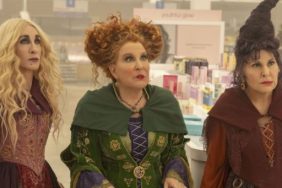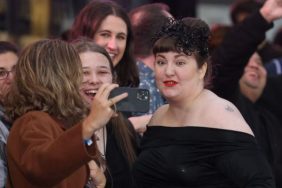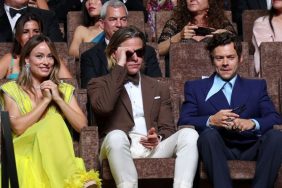A busy week with AFI Fest starting last week got even busier when director Mike Newell came to town for the American release of his latest film, Great Expectations. I would have loved to bring you this interview the day the film opened, but in addition to a crowded week, Newell and I got along so well that it became an epic interview that demanded extra attention. Of course the film is still playing and you know the story of Charles Dickens’ Great Expectations. You also know Newell as the director of Four Weddings and a Funeral, Harry Potter and the Goblet of Fire and many others, my personal favorite being Donnie Brasco.
CraveOnline: Were you annoyed that Alfonso Cuaron made a Great Expectations movie that changed all the names?
Mike Newell: Nooo! Not at all. No,I don’t care in the least. Alfonso and I know one another because of Harry Potter of course. He has always been very kind to me. When he asked me, the last time I saw him, what I was doing and I told him I was doing a version of Great Expectations, he made the sign of the cross with his fingers, and I assumed that that was because it wasn’t the happiest of experiences for him. I thought it was a terrific film actually. I’ve watched every version of this film and the TV [versions] that have ever been made. I watched, I don’t know, 10, 11 versions and I stole a little bit from every one of them, and I certainly stole from Alfonso who is worth stealing from.
What did you steal from his film?
There’s a wonderful, wonderful bit when the kids are still young, when they go to a fountain in the courtyard of that crazy house that Miss Havisham has, and they drink from the public fountain. They get their mouths right close together, so that they’re mouths are touching so it’s like a kind of kiss, except that it’s made okay because they’re drinking water. He’s a Latin and he’s very, very sexy, Alfonso. He’s very alive to that sort of thing. I didn’t take it literally of course, but I found the whole opening up of the idea that the children did actually have sort of unexplained, very strong physical feelings for one another was tremendous. I translated that into hair actually. My Estella’s hair was very important.
What did you take from the David Lean Great Expectations?
I thought that the David Lean version, which is very interesting because it’s made in 1945 [released in ’46], it’s just after the war, so what it does is it sets back on their pedestals all the British sacred verities. Dickens is part of the cultural ruling of the world that we do, so therefore it mustn’t be sexy, you mustn’t stress the whole business of class because you don’t really need to. The nice people are the middle class people, and so on and so on and so on. What David Lean does is to say, “Let’s all go back to the way things were before the Second World War. Let’s stand that statue back up on its pedestal.” And I was very interested not to have to do that. So it was very useful to me to have that as an example.
Had you watched all the previous versions in the context of getting this job, or has Great Expectations been personal to you all your life?
It’s a bit of both. It has been a big story for me all my life because I first came across it when I was 14 or 15, something like that. I then went on and when I was at university, I had a very great thing for Dickens to the point where I was thought slightly crazy because we all knew that Dickens was a kind of comic novelist of the second rank. I didn’t think that at all. I thought that he was a tremendous novelist of the very first rank. I think that Dickens has got a more recognizable voice to the British these days than even Shakespeare.
Shakespeare? Wow.
Well, I think you know it’s Dickens almost instantaneously. Of course we’re closer to him than we are to Shakespeare. At any rate, he’s very, very important to us so I lived with that. I have loved all the books and I desperately wanted to make a Dickens, and particularly last year which was the 200th anniversary of the birth. That was actually quite a big thing with us.
Is there another Dickens book you’d like to make a film of also?
Yeah, I have worked with a marvelous English writer called Michael Eaton on a book called Dombey and Son. I would love to do Dombey and Son but the problem with Dickens is always to do with screen time. You can’t get these books into a two-hour span. Great Expectations is remarkable because it’s less than 500 pages long so you stand a chance. With something like Dombey and Son and some of the other novels, these books are nearly 1000 pages long and that’s just impossible.
Could it be a two-parter?
Not as a movie.
They do that now with books.
If you say so. I’ll give it a go, why not? Sure. If somebody came to me and said, “Do you want to do Dombey and Son as a two-parter?” I’d jump at it. Christ, I’d love that.







